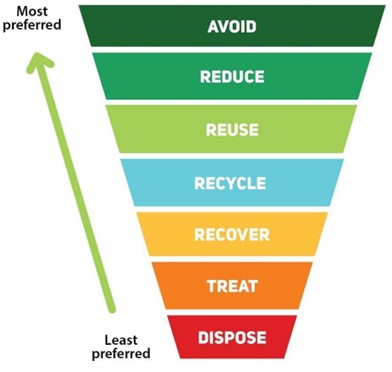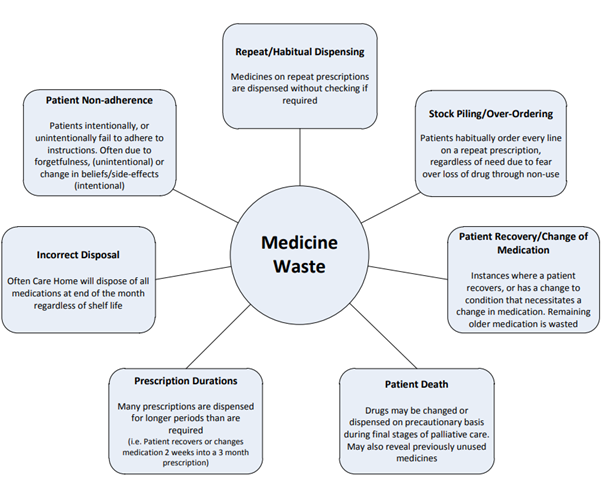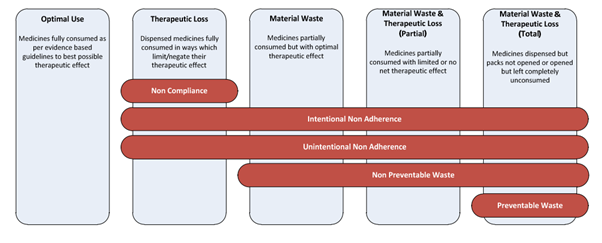A climate emergency has been declared by all West Yorkshire councils as well as the UK parliament and the NHS has pledged to be net zero in terms of carbon emissions by 2045.
The British Medical Association in their report 'Sustainable and environmentally friendly general practice' state that nationally, pharmaceuticals are the second highest contributor to the NHS carbon footprint, and primary care pharmaceuticals are the largest contributor to the carbon footprint of general practice in the UK.
What we know
- A 2010 report estimated that pharmaceutical waste represents approximately £1 in every £25 spent on primary care and community pharmaceutical and allied products use. For the West Yorkshire primary care medicines spend, that’s potentially £17 million per year of wasted medicines
- Appropriate disposal of medicines is known to be sub optimal and data from 2006 indicated less than 25% of UK household medication waste was returned to pharmacy for destruction with the greatest proportion being placed in domestic waste
What this means
- Waste medicines are a significant burden to system capacity, contribute to drug shortages and pose safety risks to patients
- Waste medicines also require appropriate disposal to avoid harm and the release of medicines within the environment such as in our water systems. One example of this is the inappropriate disposal of antibiotics contributing to antimicrobial resistance
- General practice engagement with the sustainability agenda is key to supporting reduced medicines waste in primary care
 Dealing with medicines waste
Dealing with medicines waste
It’s important to consider addressing waste early in our prescribing, ordering and supply processes as avoidance and reduction of waste is preferable to managing avoidable waste as highlighted in the waste hierarchy diagram opposite.
Processes that can support waste avoidance may include:
- electronic repeat dispensing (eRD) for suitable patients
- Use of proxy ordering in care homes: NHS England: How to set up care home proxy access
- Repeat medicines synchronisation in the patient’s medical record
- Completing a Structured Medication Review (SMR), for example in people taking more than 10 medicines or are living with frailty or have a high anticholinergic burden (ACB) or are on opiate-based medicines.
- Reducing overprescribing in line with the National Overprescribing Review Report (2021); Good for you, good for us, good for everybody.
There are lots of resources available around SMRs, reducing overprescribing and deprescribing in the resources section at the bottom of this page.
Medicines waste – where does it come from?
The 2015 paper Pharmaceutical waste reduction in the NHS on page 10 suggested that medicines waste results from a variety of causes as shown in the diagram below. Reviewing processes and procedures in your GP practice or primary care network in these areas could help reduce medicine waste.

At the core of the reducing pharmaceutical waste agenda is the need of the patient. The below diagram from p9 of the 2015 paper Pharmaceutical waste reduction in the NHS shows the potential outcomes linking medicines waste with patient outcomes.

Resources to support reducing medicines waste
There are a range of resources and toolkits available to help general practice adopt more sustainable and environmentally friendly systems and navigating this can be time-consuming. Specific information about medicines waste and how it can be reduced can be hard to find.
In this section we provide you with a summary of where you can find useful resources and toolkits that focus on how to reduce medicines waste, medicines optimisation (the best way to reduce the use of unwanted or unneeded medicines) and links to other people trying to do the same.
1. Resource - Reducing Overprescribing
2. Resource - Greener Practice
A community of healthcare professionals working together to inspire sustainable general practice for the health of people and the planet. Free website option to sign up to Whatsapp groups and a newsletter. Aimed at primary care / general practice and includes particularly good respiratory resources.
Reducing waste in health care – Greener Practice
3. Resource - Primary Care Climate Change Toolkit.
West Yorkshire Health and Care Partnership climate change toolkit covering many aspects of climate change, not specifically for medicines. Aimed at primary care and available to all.
Link: West Yorkshire Health and Care Partnership Primary Care Climate Change Toolkit
4. Resource - PrescQIPP adherence and waste information
Resources for professionals that can be tailored for local use in a waste campaign. Patient awareness resources, for example, leaflets on repeat prescription ordering, graphics for screens in waiting rooms etc. Aimed at primary care / general practice.
You'll need to sign up - contact your Place meds opt team for a logon.
5. Resource - Royal College of GPs – Green Impact for Health Toolkit
Toolkit to answers the question – what can you do in your practice to reduce your environmental impact and improve sustainability? Aimed at primary care / general practice.
Sign up needed – you must be a registered GP surgery
Link: Royal College of GPs Green Impact for Health
6. Resource - The Specialist Pharmacy Service guides
The Specialist Pharmacy Service has written guides on managing pharmaceutical waste including:

